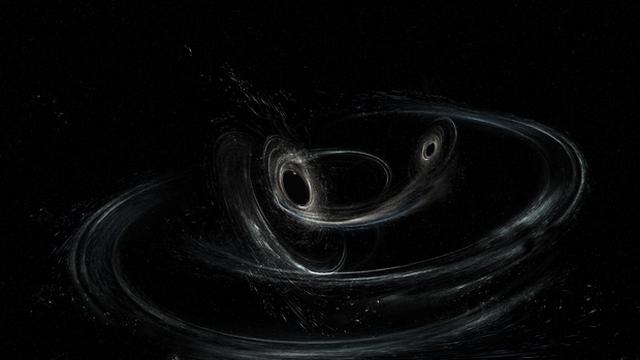Results
LIGO–Virgo–KAGRA complete their richest gravitational-wave observation run to date
November 18, 2025
Gravitational Waves GroupThe LIGO–Virgo–KAGRA (LVK) Collaboration has announced the completion of O4, the most productive gravitational-wave observation run so far, yielding an unprecedented number of candidate events and high-quality data for the scientific community.
Researchers from IFAE, who participate in both Virgo and LIGO, contributed to different areas including support for operations, commissioning, data characterization and calibration of the LIGO and Virgo experiments and physics analysis, in addition to providing significant computing resources to the experiments via PIC . Their work supports the search for black-hole and neutron-star mergers and the improvement of detector sensitivity.
During O4, the detectors recorded hundreds of candidate gravitational-wave signals and operated with improved duty cycle and stability. The public alert system also enabled rapid community follow-up of transient events. The collaboration is now preparing for the next major upgrade period ahead of O5, which will further enhance sensitivity and expand the accessible volume of the Universe.
IFAE researchers will continue to contribute to the forthcoming upgrades (including the installation at Virgo of two new large instrumented baffles as designed and built at IFAE and further assisting in the control of the stray light inside the experiment), LIGO and Virgo operations and data analysis, and to the global effort to refine gravitational-wave astronomy.

Gravitational Waves
Spain strengthens its participation in major gravitational-wave infrastructures
December 10, 2025
The Spanish Ministry of Science, Innovation and Universities has allocated new funding to Spain’s participation in major international gravitational-wave infrastructures, with the Institut de Física d’Altes Energies (IFAE) designated as the institution through which these contributions will be channelled.
Results
LIGO, Virgo and KAGRA observed 'second generation' black holes for the first time
October 29, 2025
Researchers from the Institut de Física d’Altes Energies (IFAE), through its Gravitational Waves group, participate in the LIGO–Virgo–KAGRA collaboration that has reported the first observational evidence of candidate second-generation black holes. The analysis of two gravitational-wave signals reveals binary systems with unusual mass ratios and spin configurations, opening a new window on black-hole formation in dense astrophysical environments.
